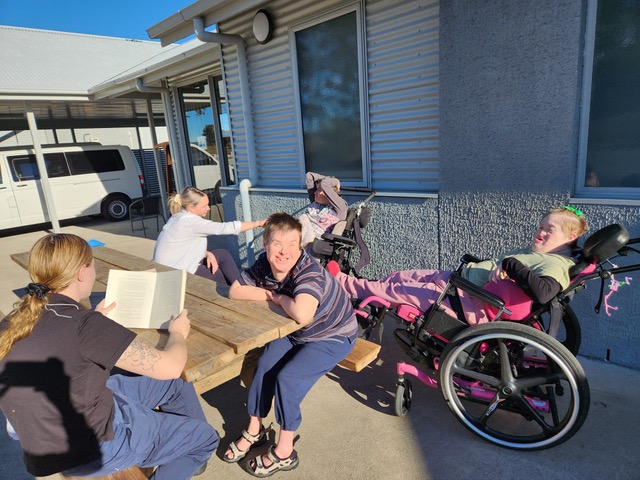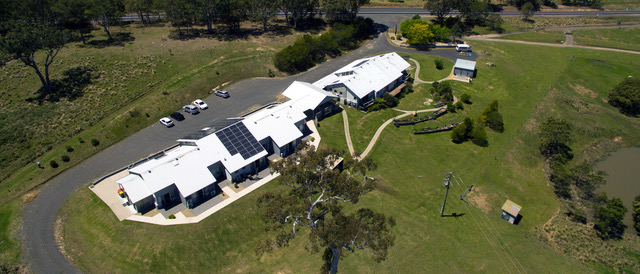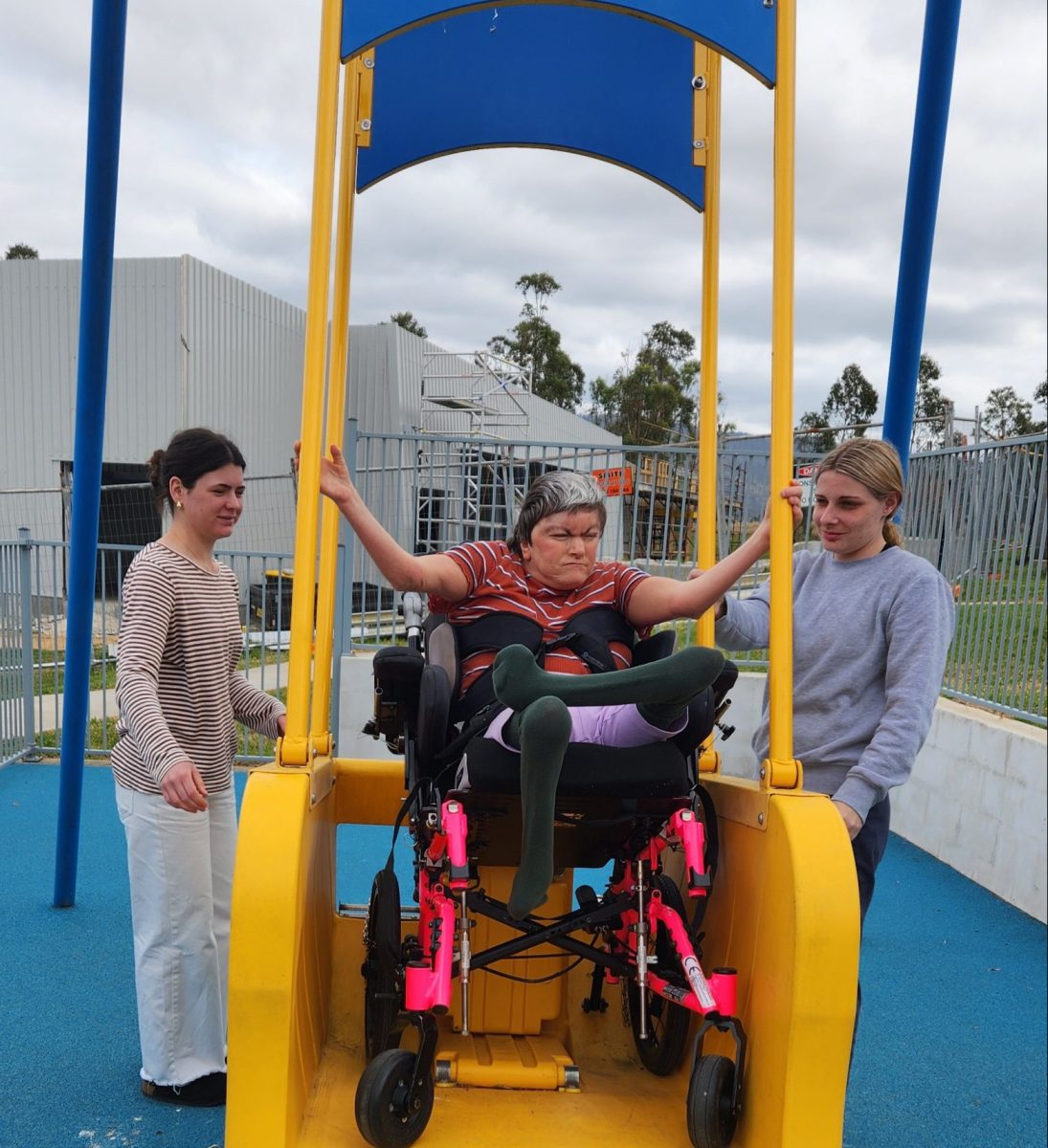
Nardy House is a respite facility for people with profound disabilities. Photos: Supplied.
Nardy House has spent months seeking reimbursement from NDIS for care it provided to a participant.
Nardy House is a registered NDIS provider. The Cobargo-based charity was set up by parents more than 30 years ago specifically for people with profound disabilities. Denise Redmond has worked at Nardy House from day one and been its CEO most of that time.
Its problem with NDIS started in 2024 when intellectually and physically disabled Participant X came to Nardy House from Bega’s hospital. He was no longer mobile, could no longer live in his group home, play golf or go to church, and his previous NDIS provider could no longer support him.
On Participant X’s arrival, Nardy House signed a service agreement with his nominee as required. Further service agreements were signed as plans changed and Participant X remained at Nardy House.
His support coordinator requested a plan review because of a change of circumstance: going from partially disabled to fully disabled and needing a different level of care.
READ ALSO: Batemans Bay residents’ group wants council-owned land retained for community use, not developed
NDIS reviewed the plan, but it came back unchanged. A review request and supporting evidence were supplied to NDIS a second time. The support coordinator was told the plan could not be reviewed until all the money from Participant X’s existing plan had been spent.
NDIS reviewed the plan, but it remained inadequate for his needs. Participant X continued to receive care based on the service agreements, but the NDIS plans never reflected Participant X’s needs.
“He had been with us for seven months by then and we were owed $300,000,” Ms Redmond said.

Registered NDIS provider Nardy House is based north of Cobargo.
Ms Redmond warned NDIS that if Participant X had to be admitted to hospital, Nardy House could not take him back.
He had a cardiac arrest. NDIS reviewed his plan, but it was still underfunded.
“We couldn’t provide support because we knew what care he needed, with at least two support people and overnight supervision,” Ms Redmond said. “He went to another service provider with that money and we are owed $300,000 for services already given.”
Nardy House’s solicitor has said it is looking at debt recovery. It isn’t clear to whom Nardy House should serve the debt recovery notice. Is it Participant X’s support coordinator at another NDIS provider or is it his nominee, a family member?
“Or is it served on the truly liable agency, NDIS?” Ms Redmond said. “We have proof that NDIS knew where he was, with very high support needs after his circumstances had changed, yet NDIS left him with us unfunded for months.
“NDIS have taken him to a different service provider, but it should have done it months earlier if the agency was not going to pay us for the care. We provided those services in good faith.”
Nardy House has spoken with NDIS, Participant X’s support coordinator, and Senator Jenny McAllister, Minister for the NDIS, to recover the money.
“If we served a debt notice on a nominee, can you imagine the impact on nominees,” Ms Redmond said. “If this goes to the court, the point will be made that nominees can be liable for debt that NDIS creates. People with profound physical disabilities will end up wards of the state or in the care of the Minister for the NDIS.”

Nardy House is a registered NDIS provider whose services support people with profound disabilities.
Region asked the National Disability Insurance Agency (NDIA) when the debt owed to Nardy House would be repaid and whether it would be necessary to take the matter to court because the point that will be made is that nominees can be liable for a debt that NDIS creates.
An NDIA spokesperson said NDIA acted at all times to protect the welfare of NDIS participants and uphold the integrity of the scheme.
READ ALSO: Far South Coast in seventh heaven with major presence at NSW Tourism Awards finals
“It is important that participants spend in accordance with their plan and providers do not provide supports that are not funded,” the spokesperson said.
It is not the first time that Nardy House has found the NDIS to be unwilling to fund the level of support that its participants needed.
In the past, some participants at Nardy House and their parents had to take the NDIS to court because the agency refused to fund the registered nurse support the participants needed.
The participants won the case. NDIS’s appeal against the court judgment was dismissed and Nardy House received $1.5 million for the provision of registered nursing supports during the litigation period.
